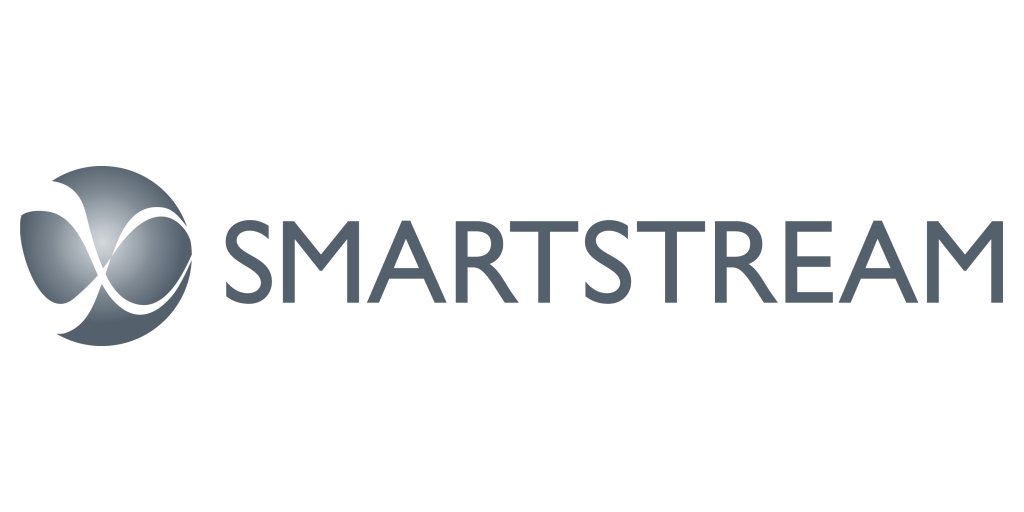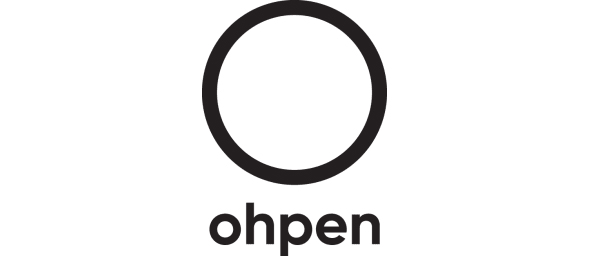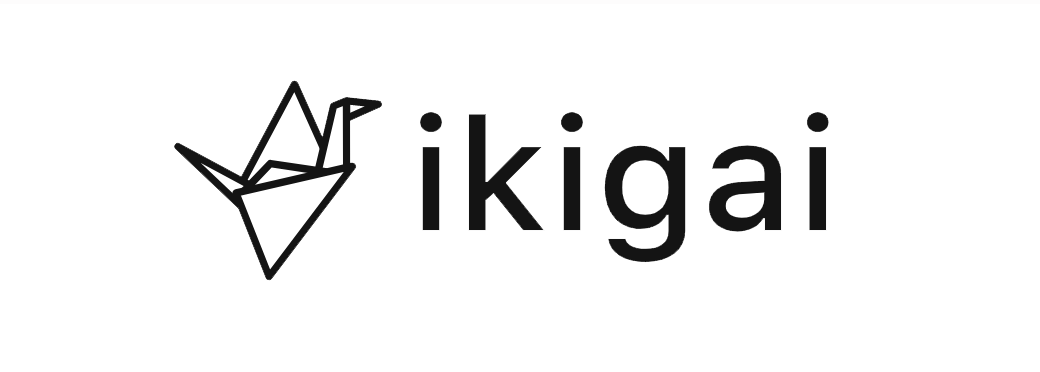Published
- 09:00 am

Multiply AI, the UK’s first fully-automated financial adviser app, today announced it has partnered with digital mortgage broker Mojo to provide the first end-to-end digital advice app free of charge for first-time home buyers.
Leveraging the power of deep learning AI, the app provides holistic financial advice for those who cannot afford to see a traditional face-to-face advisor.
The free-to-use online service helps people save up to buy their first home, providing tailored recommendations to help grow their wealth and then offers the best mortgage deals in a fast and transparent way. The process is simple and easy to use, and customers get the investment support they need in a matter of minutes.
Multiply AI also provides an achievable pathway to get on the property ladder by launching access to a market-leading Lifetime ISA (LISA). This comes as many help-to-buy ISAs are closed to new applicants and most first-time buyers have been stalled due to lockdown measures.
Vivek Madlani, CEO of Multiply AI, said: “Our partnership with Mojo will help homebuyers from the point at which they decide to start saving their deposit, all the way to getting their keys."
“Mojo shares our ambition to democratise access to financial advice and remove key barriers to entry for first-time home buyers – namely financial knowledge to saving and getting the right mortgage. Together we are delivering a complete online experience that is easy to understand, cost-effective, fast and transparent."
“Multiply and Mojo will allow first-time buyers to go from deposit saving to homeownership without any of the frustrating paperwork, delays and fees that are usually associated with the traditional process of buying a home.”
Mojo’s award-winning free service has made great strides in bringing transparency and convenience to first-time buyers with innovations such as MortgageScore and real-time eligibility across thousands of mortgage deals from 90 lenders.
The smart, time-saving tech allows Mojo’s expert mortgage advisers to spend more time with first-time buyers, giving them real confidence in their mortgage decisions.
Even during the pandemic, many first-time buyers remain locked out of the housing market due to high demand, ongoing housing shortages and soaring property prices. Average first-time buyer house prices are up 10 percent from 2019, with the average UK property now worth £260,000. The average mortgage deposit required is also up – with most lenders requiring a minimum of 10 percent of the purchase price.
On top of this, most high loan to value (LTV) mortgages for small deposit borrowers have been pulled during the pandemic. These 95 percent loan-to-value mortgages offered a unique opportunity for first-time buyers to get their foot on the ladder.
Even with the demise of this lending option there are still other kinds of mortgages available but picking the right one can be confusing and time consuming without sound advice.
By joining forces, Multiply and Mojo are disrupting a process that has traditionally been difficult for first time home buyers to navigate. Customers can now get the quality advice and support they need to make the right decision about saving for a property and choosing a mortgage – with just a few taps on their smartphone.
Richard Hayes, CEO of Mojo, said: “We help thousands of people with mortgages and re-mortgages, but it’s always great when we can make things just that bit easier for first-time buyers, and this partnership with Multiply does that."
“Many first-time buyers have seen their plans disrupted over the past year, and most will want to make 2021 the year they get on the ladder - particularly if there is a softening of house prices after the SDLT holiday."
“This partnership gives them the quality advice and confidence they need to make better and more informed decisions about the biggest investment they will ever make in their life.”
The app can be downloaded from the App Store and will soon be available on Android phones.
Related News
- 06:00 am

Global payments service provider SumUp (www.sumup.co.uk) announces today that it has raised a €750m facility from Goldman Sachs, Temasek, Bain Capital Credit, Crestline, and funds managed by Oaktree Capital Management, L.P.. With Goldman Sachs’ and Bain Capital Credit’s continued support as existing investors and high demand from new investors, the current round was oversubscribed.
SumUp will use the proceeds to accelerate its growth and continue to acquire and support its existing merchants in 33 markets across the world. The new funds will also be used to continue expanding SumUp’s product suite, both organically and through further acquisitions (M&A), as well as for refinancing existing debt facilities.
The company has recently broadened its product portfolio in the POS and gastronomy space across the UK and continental Europe through the acquisition of leading POS software providers Goodtill and Tiller. These recent acquisitions will put SumUp into contact with potentially millions of new customers, from cafes and restaurants right up to the biggest sports stadiums and concert arenas; signalling a new generation of SumUp merchants coming into play. SumUp has also recently completed the acquisition of the core banking system provider Paysolut, as part of its strategy to build up its offering of banking services for merchants.
Despite the effects of COVID-19 on SMEs, SumUp has entered 2021 in its strongest position to date. Over the past year, SumUp has unveiled a host of new solutions and innovations to help businesses navigate the operating restrictions brought about by repeated lockdowns. This included the introduction of payment links & invoicing options, new online selling functionalities through the ‘SumUp Online Store’, and gift card collaborations with Google, Facebook, and Instagram; solutions all designed to help business owners to receive payments safely and continue trading in the face of uncertain economic circumstances.
In the year ahead, SumUp is looking to grow its 2000+ strong team by adding the world’s best talent to its 19 international offices on three continents. In addition to prominence in Europe, the US, and Brazil, SumUp’s long-term trajectory will include expansion into Asia. In Europe, SumUp has launched in Romania, bringing the number of its European markets to 29. Within its new markets, SumUp acquired the full stake in the joint venture it previously had with Chile’s BancoEstado and will continue serving merchants and developing the market further exclusively under the SumUp brand. The Colombian market launch is also a hugely significant step for SumUp, with the fourth largest economy in LATAM and a population of over 50 million people now able to come into contact with the company’s technology. With thousands of merchants joining the SumUp services every day, its proprietary card terminals are relied upon by over 3 million businesses globally.
Marc-Alexander Christ, Co-founder at SumUp comments: “Each day I continue to be impressed by how the SumUp team has faced down the challenges of the past year and continued to deliver the vital, payments technology that empowers small businesses all over the world; helping them to continue to be successful doing what they love best. As one of the fastest growing technology companies in the world, this cash injection - in addition to having the built-in option to expand the financing - will significantly accelerate the growth of our customer base, enhance SumUp’s technology leadership position, and drive the development of new services to support our merchants globally.”
Tom Maughan, from Bain Capital Credit comments: ”We’re proud to be backing SumUp once again and we recognise the truly impressive strides made by the company over the past couple of years. We have huge admiration for what SumUp is doing for small businesses across the world in helping them to keep trading and flourishing in some of the most trying economic circumstances imaginable. The doubling down of our investment in SumUp in this round is both a demonstration of our confidence in the company today and its strong future.”
Related News
- 01:00 am

The Western Union Company (NYSE: WU), a global leader in cross-border, cross-currency money movement and payments, today was named winner of the “Consumer Payments Innovation Award” in the fifth annual FinTech Breakthrough Awards for 2021. The company’s innovative cross-border money transfer solution was awarded for its ‘plug and play’ technology used by a growing number of financial institutions to offer seamless, convenient, reliable, and fast international money transfer capabilities for their customers, connecting them to more than 200 countries and territories and over 130 currencies.
Western Union’s White Label Digital Partner technology solution enables FIs to use their existing branded customer technological interface to provide international money transfer services. FI’s customers can fund the transfers drawing from their linked bank accounts, wallets, or cards and choose to pay their receivers through the world’s widest-reaching networks, operated by Western Union, accessing billions of bank accounts, millions of digital wallets, and cards, and over half a million retail locations.
The FinTech Breakthrough Awards is the premier awards program founded to recognize the FinTech innovators, leaders, and visionaries worldwide in various categories, including Digital Banking, Personal Finance, Lending, Payments, Investments, RegTech, InsurTech, and many more. The 2021 FinTech Breakthrough Award program attracted more than 3,850 nominations from across the world.
“Western Union continues to deliver stellar customer experiences for consumers and businesses, moving money around the world every day, simplifying international money transfer complexities, including compliance, regulatory control, and settlement in over 130 currencies. Western Union has taken decades of innovation in serving its own branded customers and is now offering this functionality in a breakthrough white-label arrangement, driving even more cross-border connections for the wider financial sector,” said James Johnson, Managing Director, FinTech Breakthrough.
FinTech Breakthrough Awards perform the most in-depth evaluation of the sector to recognize the creativity, hard work, and success of innovative FinTech companies, technologies, and products worldwide.
“We are thrilled with the 2021 FinTech Breakthrough Award win and are honored with the recognition for our innovative cross-border money movement ‘plug and play’ capability, offered white label or branded as a part of our Digital Partner technology solution,” said Western Union President of Global Network, Jean Claude Farah.
Farah continued, “FI customers can initiate transactions from their bank website or mobile app and send directly to beneficiaries’ bank accounts, mobile wallets, cards, or for in-person cash pickup throughout Western Union’s leading global financial network bridging more than 200 countries and territories and over 130 currencies. With our Western Union Digital Partner technology solution, FIs can count on us to handle the cross-border payout of transactions seamlessly, in minutes, at scale, and in compliance with national and international regulations.”
The opening of Western Union’s cross-border platform and global financial network to third parties marks a strategic step to evolve Western Union to a diversified payments company, accessing adjacent cross-border money movement segments, and adding incremental customers.
FIs and the customers they serve no longer need to be confined to expensive, unpredictable, traditional cross-border payment channels. Western Union’s solution keeps the customer experience firmly in the hands of the FI - from the user interface to branding to pricing - while Western Union takes care of the complexities of the cross-border payout to the beneficiary. Additionally, Western Union’s robust compliance and risk ecosystem supports partners with sanctions and interdiction screening, and real-time risk assessment to detect and prevent fraud while also meeting local regulatory requirements for payouts.
Related News
- 02:00 am

The chargeback specialist for financial institutions (FIs) and sister company of Chargebacks911, Fi911, has launched a new report to support FIs in their preparation for full PSD2’s Strong Customer Authentication (SCA) enforcement.
The report, Strong Customer Authentication: The State of SCA Adoption in 2021, shares actionable advice and insights for acquirers supporting their merchants with compliancy, as well as issuers getting ready to filter transactions under the new regulations.
Craig McClure, Director of Relationship Management at Fi911, commented: “SCA is a controversial beast that merchants and FIs are approaching slowly and with great caution. Handled incorrectly, it can cause low acceptance rates, increased abandonments, and more friction during the checkout process."
“However, it also has the potential to be hugely positive for the ecommerce space – providing we see a rapid collaborative effort across the payments industry and a response in the form of data-driven decisions, solutions and tools.”
In the first instance, Fi911 recommends issuers optimise their risk-based decisioning processes to help standardise them across the sector.
It also advises acquirers to consider SCA-compliance as just a starting point in fraud management, urging them to look beyond the 3D Secure 2.0 protocol (the main security tool being used to ensure compliancy) as a precedent for their anti-fraud and authentication processes.
Tracy Cray, Director of Card Scheme Compliance at Fi911, added: “SCA is a great basis for an FI’s multifaceted fraud management, but it is not the be-all and end-all. Especially since fraud attack rates are soaring at unprecedented rates (25%+) across all transactions due to COVID-19 and the subsequent boom in ecommerce activity.”
Cray explained that while SCA-compliant tools like 3D Secure 2.0 are a strong way to protect against fraud pre-transaction, it will not prevent post-transactional threats such as illegitimate chargeback (otherwise known as friendly fraud).
She continued: “We’ve recorded a major escalation of friendly fraud and chargeback claims in recent years, and this has grown dramatically since the pandemic began – some industries have seen 10 times the amount of chargebacks than before COVID-19. While SCA can help reduce issuances caused by merchant error and criminal activity, friendly fraud is set to represent an even greater share of future chargeback rates.”
Data from Fi911 suggests that global chargeback issuances will see a compound annual growth rate (CAGR) of 16.3% annually between 2018 and 2023. The majority of these cases will be instances of friendly fraud, accounting for 61% of all chargebacks in North America and 73% in Europe.
Cray elaborated: “Fraudsters may gravitate further towards claims of packages not arriving, packages being damaged, or goods not being as described, since these can be submitted/filed 120-days after a transaction has been completed and authorised through SCA.”
Related News
- 03:00 am

QUO, the execution management and workflow solution from TradingScreen (TS), the all-asset class execution and order management system, has launched a new web solution for the Private Bank and Wealth Management divisions of sell-side institutions to distribute to their buy-side clients. A cloud based high-touch execution management system, the web application is a workflow solution and trading platform now available to banks and brokers.
Initially launched in 2019 for the buy-side wealth management community, QUO’s expansion into the sell-side recognises the sell side demand for superior technology and connectivity.
Sell-side firms can now white-label and distribute the QUO platform as a privately branded online trading platform in less than three months from initiation. The ease and speed follow on from the banking sector’s push to encourage more clients into digital workflow solutions. QUO merges data, all asset class positions, pre-trade checks, P&L, and referential positions with an execution management system.
Will Lawton, Head of QUO, commented: “Following the success of QUO with our primary wealth management client base, we have enhanced the QUO offering, expanding it to the private banking and wealth management divisions of sell-side institutions to help them service their end clients. With greater market demand for automation and connectivity, QUO can be utilised by not only our clients but their clients – allowing for greater digitalisation across the board.”
To date, over 65 QUO clients have already gone live with the white-labeled system. The sell-side launch of QUO follows the continued success of TradingScreen’s all-asset class execution and order management system, TradeSmart – which enables asset managers and hedge funds to meet today's market structure challenges.
Related News
- 01:00 am

SmartStream Technologies, the financial Transaction Lifecycle Management (TLM®) solutions provider today announce the expansion of its Innovation Lab, with the recent opening of its new workspace in Mariahilfer Strasse in Vienna, Austria. This doubles the footprint and supports the company’s growth in client innovations – where SmartStream spends a quarter of its revenues on R&D.
SmartStream’s Innovation Lab is a collaboration of highly skilled mathematicians, applied data scientists and IT specialists. The innovation team has partnered with a number of Tier 1 banking customers to investigate the use of AI, machine learning and blockchain. These partnerships assess how advanced technology can be used to re-engineer traditional processes to boost efficiencies, cut costs, and enhance business plans.
Andreas Burner, CIO, SmartStream, states: “It is a logical step in our business growth to move to a larger workspace in Vienna. In addition, it is a city with highly skilled data scientists and experts who provide the necessary skills and support to accommodate our ongoing expansion, and partnerships with our banking clients.”
SmartStream increased its global headcount by eight percent last year and since the start of 2021 it has been recruiting for a further 100 open positions.
Related News
- 02:00 am

Today, Ohpen announces the addition of Leni Boeren to its supervisory board. Boeren will join Leonard van Loon (NPM) and Michel Vrolijk (Amerborgh) to supervise Ohpen’s international growth as it brings its cloud-native combined savings, investment and lending platform to the market. Boeren continues to hold non-executive board seats for, amongst others, Air France–KLM and Tata Steel Nederland.
Boeren has over 20 years of board experience, including seats on the executive board of the Amsterdam Exchanges, Euronext, the Dutch Fund and Asset Management Association (DUFAS), Robeco Groep, Van Lanschot Kempen and was most recently CEO of Kempen Capital Management. In 2011, Robeco, with Boeren as its COO, became Ohpen’s first client. Boeren was instrumental in Ohpen’s initial success; working with Ohpen to coordinate the Dutch Central Bank’s approval of the use of AWS for storing financial data, and AWS’s approval for the Dutch Central Bank’s right to audit–both of which had never been done before.
Matthijs Aler, CEO of Ohpen, said, “Leni is one of the rare powerhouses of Dutch supervisory boards, and I am extremely proud to welcome her to this role. She brings a unique combination of both experience in the finance sector with a focus on technology and operations, and as an executive and supervisory board member in an international setup. Leni was the first person to take a chance on us–so we’ve seen first-hand her ability to take calculated risks, and push for innovation, whilst keeping a close eye on customer experience. We have no doubt that she will be of enormous value to Ohpen and its clients.”
On her appointment, Leni Boeren commented, “Ohpen has always been at the forefront of innovation. When I first met Ohpen 10 years ago, I knew that its truly unique cloud-based platform would be the future. Since then, we’ve seen more companies wake up to the benefits of using a cloud-native core banking provider. This change in attitudes, coupled with Ohpen’s acquisition of Davinci last year, means this is an opportune moment for Ohpen to change the industry once again with their combined cloud-native savings, investment and lending platform. I was excited to work with Ohpen all those years ago; seeing that more financial institutions are recognising the freedom that Ohpen’s platform can give them to innovate rather than maintain makes me excited about what the next decade holds.”
Ohpen plans to bolster its supervisory board in the near future by adding a fourth supervisory board member with in-depth technical knowledge and experience.
Contact info@ohpen.com for more information
Related News

John Ennis
Vice President Banking UK/I, Sub-Saharan Africa, Middle East and Nordics at Diebold Nixdorf
The financial services industry was already undergoing a significant period of transformation and there is no doubt that the ongoing pandemic has accelerated some of th see more
- 02:00 am

ikigai, the new premium fintech bringing self-care to personal finance, has today announced its official launch in the UK.
Founded by Maurizio Kaiser and Edgar de Picciotto, who met whilst working at McKinsey, ikigai empowers its clients to spend well, save well and invest well. Offering all the personal financial tools now expected of a digital bank, ikigai also provides wealth management features that allow clients to invest in fully-managed portfolios of exchange traded funds, built and managed using asset allocation guidance from BlackRock.
Maurizio Kaiser, co-founder of ikigai, says: “ikigai is about empowering people, aligning their finances with their sense of self and purpose. Technological advancement has touched nearly every aspect of our lives. But when it comes to wealth, incumbents and challengers keep chasing the same audience with their same one-size-fits-all offerings. It doesn't make sense. There’s a growing number of young and affluent people who are currently overlooked by banks of all sizes and platforms. That’s why we’ve built ikigai. Our clients are people focused on the purpose of wealth, not it’s mindless accumulation. They associate self-care and financial wellbeing with success and self-confidence. And they’re entering their prime earning and spending years, but the tools available right now simply don’t meet their increasingly complex financial needs. They’re underserviced and underestimated, but ikigai is here to change that.”
Spend well, save well, invest well
ikigai aims to give clients complete visibility of their money as well as high-level access and control over their financial lives.
Distinctively and elegantly designed at every touch point, from app to site to card, with a subscription model that is flat, fair and transparent, new clients can sign up within just a few minutes after downloading from the Apple App Store. Every new client is set up with a relationship manager who provides a high-touch, human connection that digital banks and fintechs today don’t offer. Once onboarded, the app has a simple, clean design that easily separates money into accounts for spending, saving and investing through the Everyday, Nest, and Wealth features.
The “Everyday” account is where clients see all their day-to-day details, including how their money is flowing in and out of their account. Transactions are automatically categorised, providing high levels of financial clarity when it comes to spending. Money can be added to the Everyday account through a bank transfer from another bank, or if a client’s ready to spend some of their savings, with an easy tap and transfer from their ikigai Nest.
Savings are put aside in the “Nest” section of the app, this is a separate account with it’s own account number, International IBAN and BIC codes. This can be topped up from the ‘Everyday’ account with just a couple of taps, or similar to the ‘Everyday’, have transfers made directly from another bank account.
ikigai also provides fully managed, globally diversified investment portfolios, found under ‘Wealth’. Believing in the power of goals-based investing, clients can define their ambitions and select these ready-made portfolios that take into account both risk appetite and the nature of what they want to achieve. From buying a property, growing their wealth, building a business or starting a family, there’s a portfolio designed to meet their needs.
All portfolios are built and managed by ikigai in collaboration with BlackRock, the largest global asset manager, who provide insights and asset allocation guidance. This means that busy clients don’t have to spend time following the markets, learning all the financial jargon or analysing companies to know which stocks to buy. Instead, all they have to do is set a goal and let ikigai put their money to work to help them achieve it. When investing, capital is at risk and the value of investments can go down as well as up.
All of ikigai’s features are available for a flat-fee that’s designed to be completely fair and transparent. Usually, with investing platforms, the more money in a portfolio the more a customer is charged, despite the same amount of work going into managing a smaller portfolio as a larger one. ikigai’s flat-fee structure removes this issue as well as any question of upsells, hidden fees or surprise costs (such as additional management, entry or withdrawal fees) that can eat up big chunks of investments over time.
Edgar de Picciotto, co-founder of ikigai, comments: “We’ve redesigned banking for the future of affluence with a product that truly provides self-care for your money. It’s about creating a fair, easy, and holistic product where wealth meets a sense of purpose.
“We are ruthlessly client-centric. This comes through at every touch point - not least our holistic approach to personal finance and our flat-fee pricing model. We’ve combined banking and wealth management to allow high levels of access, control, simplicity and balance. We’re values-driven, just like our clients, with a focus on goals-based investing and empowering clients to achieve their financial and personal ambitions. We are always thinking of the client first and building to ensure the best experience and to meet their needs on a more personal level. The fact is that the way people feel about money has changed - it’s not just about spending power, but living power. And that presents an historic opportunity.”
Unlike the original neobanks, ikigai has not built its tech from scratch, instead focusing on providing the best user experience for its clients by partnering with best-in-class technology providers including Railsbank and WealthKernel.
Previously, ikigai raised £2 million from private and angel investors in a pre-seed round completed in 2020.
Related News
- 07:00 am

“Our statistics confirm that there is an increasing demand for alternative lending among the population. In the markets of our operation, many people still lack access to traditional financial services. For example, in Russia, Kazakhstan and Spain, the share of the underserved population varies from 44% to 53%. In Southeast Asia, around 75% of adults are either underbanked or don’t have a bank account, and in India 54% do not have full access to finance. The pandemic resulted in the underconsumption and further restrictions introduced by traditional banks, so people started using non-bank loans more frequently. We are glad to be able to partially satisfy their needs and contribute to the development of financial inclusion across our footprint,” - said Sergey Sedov, CEO of Robocash Group.









